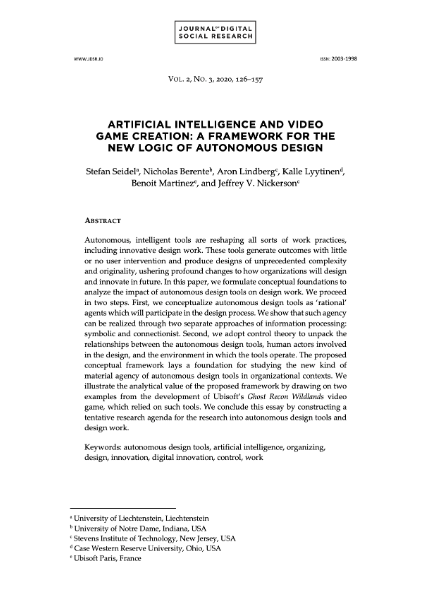Artificial Intelligence and Video Game Creation: A Framework for the New Logic of Autonomous Design
DOI:
https://doi.org/10.33621/jdsr.v2i3.46Keywords:
Artificial Intelligence, Autonomous Design Tools, Control Theory, organizing, design, innovation, digital innovation, control, workAbstract
Autonomous, intelligent tools are reshaping all sorts of work practices, including innovative design work. These tools generate outcomes with little or no user intervention and produce designs of unprecedented complexity and originality, ushering profound changes to how organizations will design and innovate in future. In this paper, we formulate conceptual foundations to analyze the impact of autonomous design tools on design work. We proceed in two steps. First, we conceptualize autonomous design tools as ‘rational’ agents which will participate in the design process. We show that such agency can be realized through two separate approaches of information processing: symbolic and connectionist. Second, we adopt control theory to unpack the relationships between the autonomous design tools, human actors involved in the design, and the environment in which the tools operate. The proposed conceptual framework lays a foundation for studying the new kind of material agency of autonomous design tools in organizational contexts. We illustrate the analytical value of the proposed framework by drawing on two examples from the development of Ubisoft’s Ghost Recon Wildlands video game, which relied on such tools. We conclude this essay by constructing a tentative research agenda for the research into autonomous design tools and design work.

Downloads
Published
Issue
Section
License
Copyright (c) 2020 The Authors

This work is licensed under a Creative Commons Attribution-ShareAlike 4.0 International License.



